A kitchen sink is not often replaced, so take time to consider your options when buying a new one.
Cost, functionality and aesthetics all need to be considered. Need help with the pros and cons of each material?
Here’s our handy guide to help you choose the perfect kitchen sink.
Stainless Steel
The most popular material for kitchen sinks is stainless steel.
PROS: They are heat and stain resistant, plus require little maintenance to keep clean. There are a vast range of options and sizes available. If you are on a budget stainless steel will be in your price bracket.
CONS: Unfortunately, thin stainless steel sinks will scratch and are prone to dents. These sinks also tend to be noisy.
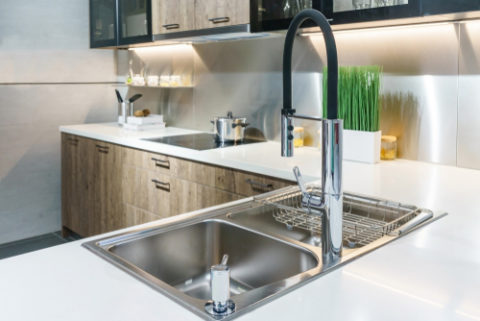
Composite Granite
Composite granite sinks are more expensive than stainless steel – but still a possibility for tighter budgets. You will also find a great selection of shapes and sizes available.
PROS: These sinks look amazing – and will last. Composite granite is very durable – being more heat, stain and scratch resistant than stainless steel
CONS: Composite granite will require more maintenance than stainless steel. Also, composite granite is very hard so it may break any items you drop on it!
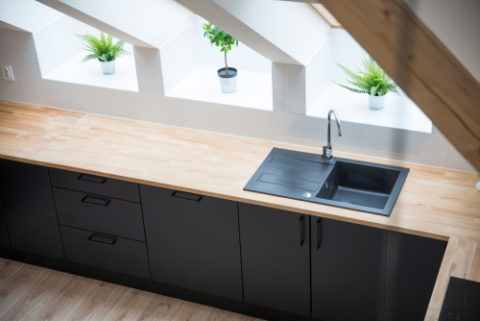
Fireclay
As you might expect – these sinks are made from clay fired at a very hot temperature. It is the most traditional material for sinks and can last a lifetime.
PROS: Very durable – they won’t scratch, stain or chip. Fireclay sinks are also easy to clean with any product and will look stylish with little effort.
CONS: This material is very heavy, so you need to make sure your worktop is suitable. Fireclay sinks are often the most expensive option too.
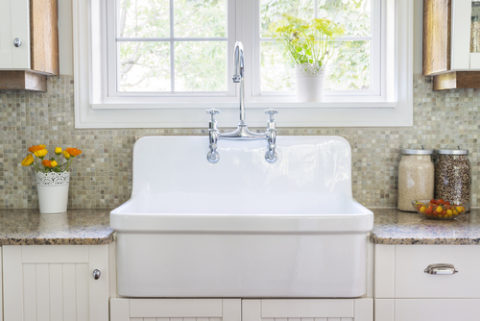
Cast Iron
This is another long-lasting option for anyone wanting a white sink to fit their kitchen.
PROS: Cast Iron is a reliable material, so these sinks will stand the test of time. They often have a smooth gloss finish which helps to resist chips, plus it looks very appealing.
CONS: This is also a heavy metal, so you may need additional mounting support to fit a cast iron sink.
It is possible that these sinks will stain – so frequent cleaning may be needed. You will need to use non-abrasive cleaners to avoid damaging the gloss coat.
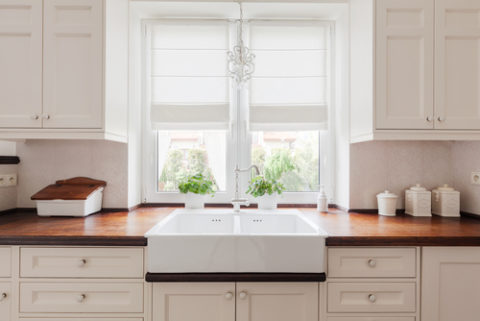
Natural Stone
Stone sinks are very attractive and add a unique natural look to your kitchen.
PROS: Natural stone is incredible strong – it is very hard to cut or dent and will resist heat. It can also be easy to clean if the stone is properly sealed and polished.
CONS: Some natural stones can discolour over time, so you will need to accept this and appreciate the characteristics. It is advisable to treat the sink with oil every few months, and the sink may need to be resealed over time.
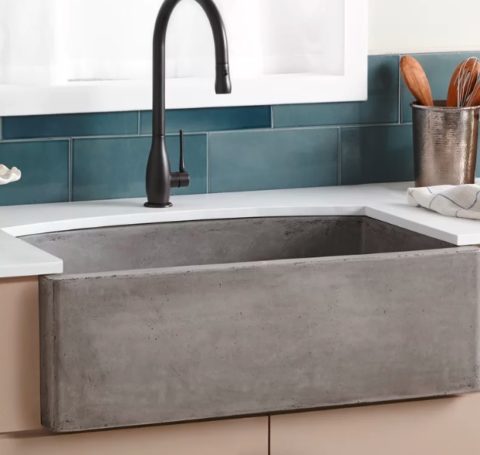
www.wayfair.com
COPPER
There has also been a trend towards copper sinks over recent years.
PROS: Copper is rust-resistant and another reliable material. Importantly it has anti-bacterial properties too making it the perfect partner for germ-prone sinks. A unique, stylish choice for your kitchen.
CONS: Be sure to use the right cleaning products on your copper sink so you do not ruin the metal. Copper can be susceptible to scratches and dents – so be cautious of this too.
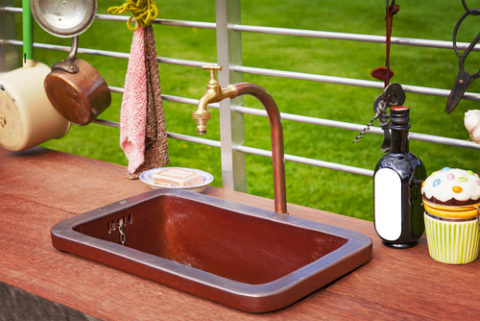
What is your favourite sink?
Let us know in the comments below!


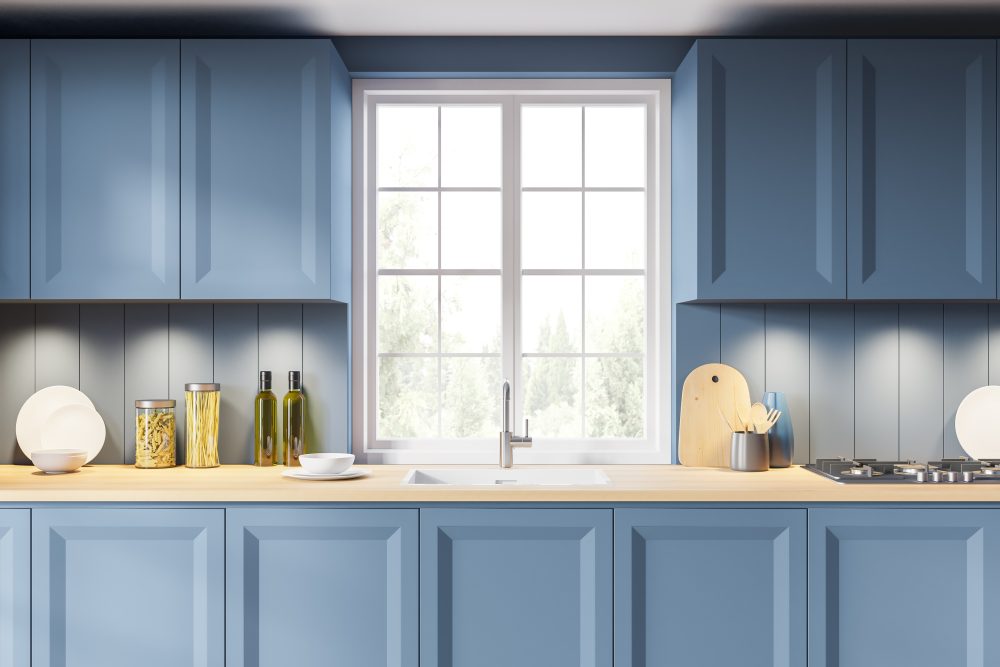
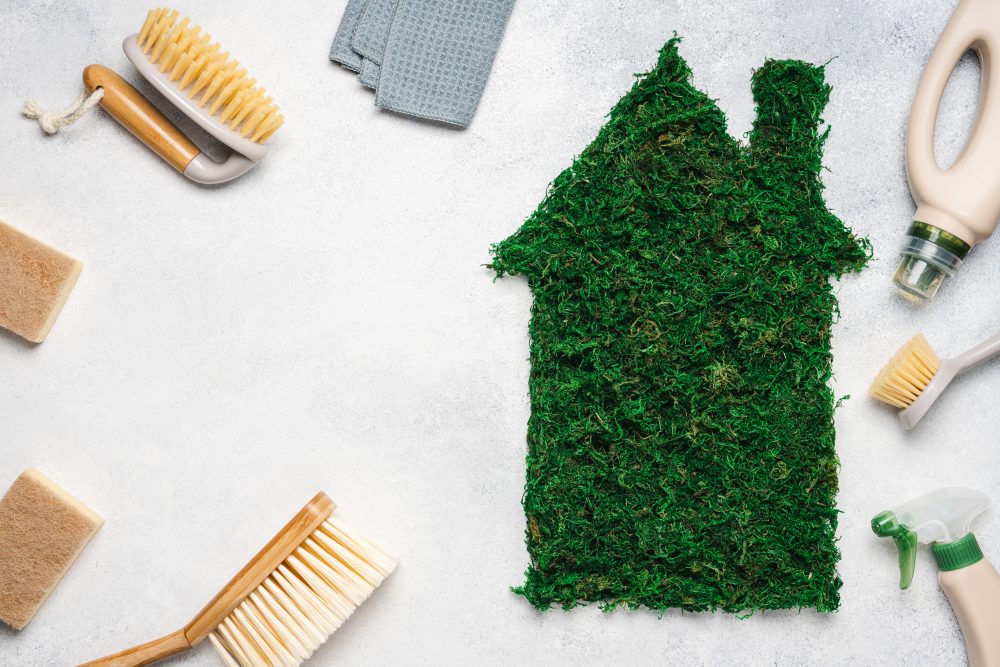
Great tips on how to go about choosing a kitchen sink.